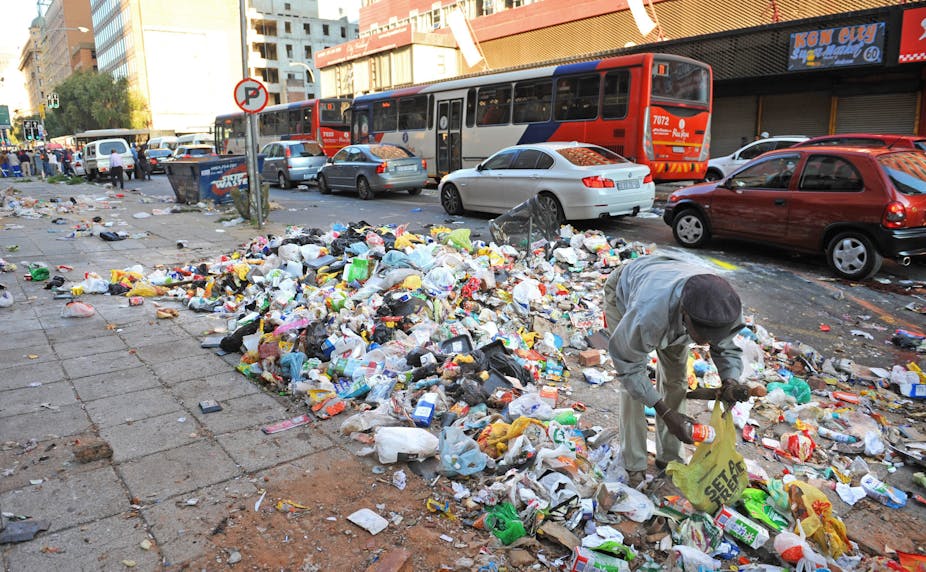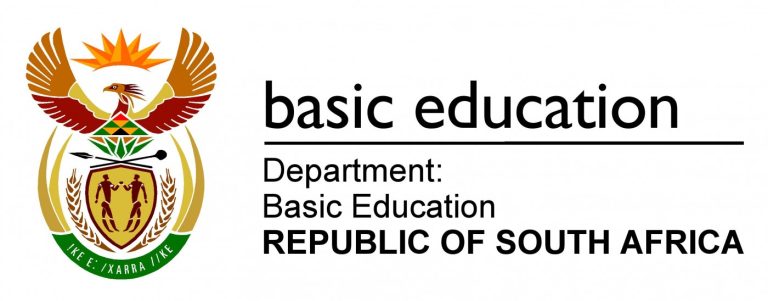Breaking News: Uncovering the Latest Developments in South Africa You Need to Know!
Breaking News: Uncovering the Latest Developments in South Africa You Need to Know!
In a rapidly changing world, staying informed is more important than ever,
especially when it comes to the latest developments in South Africa. From political shifts and economic changes to cultural movements that shape the nation, the landscape is constantly evolving. This article dives deep into the breaking news you need to know, offering insights that not only inform but also empower you to understand the implications of these changes. Whether you’re a longtime resident, a traveler planning a visit, or simply curious about this vibrant country, our coverage will equip you with the essential knowledge to navigate the current realities. Join us as we uncover the latest news stories that are making waves across South Africa, ensuring you stay ahead of the curve and connected to the pulse of the nation.
Overview of Current Events in South Africa
South Africa, a nation rich in history and diversity,
is currently navigating a tapestry of events that range from political shifts to economic and social changes. The country’s dynamic landscape is shaped by a series of developments that have significant implications for its future. These events are not isolated occurrences but are interconnected, influencing each other in ways that impact the daily lives of South Africans.
One of the most pressing issues currently facing South Africa is the political landscape, which is undergoing significant transformations. Political stability or instability can have profound effects on various sectors, including the economy, social policies, and international relations. As the nation
approaches pivotal moments,
such as elections or significant legislative changes, understanding these dynamics becomes crucial for both residents and observers.
Additionally, the economic situation in South Africa is a frequent topic of discussion and concern. With fluctuating markets, policy changes,
and global economic pressures, the state of the economy affects everything from employment rates to the cost of living.
Keeping abreast of these economic trends is essential for making informed decisions,
whether you’re a business owner, an investor, or simply trying to manage household finances.
Key Political Developments and Their Implications
South Africa’s political scene is anything but static, with recent developments suggesting a period of significant change and adaptation. The African National Congress (ANC),
the ruling party since the end of apartheid, continues to dominate the political landscape,
but not without facing considerable challenges. Internal factionalism within the ANC has led to a series of power struggles and leadership contests, which have,
in turn, affected governance and policy implementation.
One of the major political stories recently has been the ongoing efforts to tackle corruption within the government. High-profile cases and commissions of inquiry,
such as the Zondo Commission, have brought to light the extent of corrupt practices over the years. These revelations have not only led to legal actions against prominent figures but have also sparked a broader conversation about transparency, accountability, and ethical governance.
Furthermore, the emergence of opposition parties and movements has added a new layer of complexity to South African politics. Parties like the Democratic Alliance (DA) and the Economic Freedom Fighters (EFF) are gaining traction, challenging the ANC’s dominance and introducing new ideas and policies. This political diversification is reflective of a maturing democracy, but it also means that the political landscape is more fragmented than ever. The implications of these shifts are profound, influencing everything from policy decisions to social cohesion and international perceptions of South Africa’s stability.
Economic Updates: Trends and Forecasts
The South African economy is at a critical juncture, with various indicators pointing towards both challenges and opportunities. The country has been grappling with sluggish economic growth, high unemployment rates, and rising levels of inequality. These issues are exacerbated by the global economic environment, which remains uncertain due to factors such as the COVID-19 pandemic, trade tensions, and fluctuating commodity prices.
One of the key trends in the South African economy is the focus on structural reforms aimed at boosting growth and creating jobs. The government has announced several initiatives to revitalize key sectors, such as manufacturing, agriculture, and tourism. These efforts are designed to attract investment, stimulate entrepreneurship, and enhance competitiveness. However, the success of these reforms depends on various factors, including political will, effective implementation, and the ability to navigate bureaucratic hurdles.
In addition to domestic policies, South Africa’s economic outlook is also influenced by its trade relationships and global economic trends. As a member of the BRICS group (Brazil, Russia, India, China, and South Africa), the country has access to significant markets and investment opportunities. However, it must also contend with competition and the complexities of international trade agreements. The performance of key trading partners, such as China and the European Union, can have a direct impact on South Africa’s export-driven sectors.
Social Issues Impacting South African Communities
South Africa’s social fabric is woven with threads of diversity, resilience, and ongoing challenges. One of the most pressing social issues is the persistent inequality that exists across various dimensions, including income, education, and access to services. Despite progress made since the end of apartheid, the legacy of racial and economic segregation continues to affect millions of South Africans. Addressing these disparities is crucial for building a more inclusive and equitable society.
Education is a cornerstone of social development, and South Africa faces significant challenges in this area. The quality of education varies widely, with many schools in rural and underprivileged areas lacking basic resources and infrastructure. Efforts to reform the education system are underway, with a focus on improving access, quality, and outcomes. However, achieving meaningful change requires sustained investment, innovative approaches, and community engagement.
Healthcare is another critical social issue, particularly in the context of the ongoing COVID-19 pandemic. South Africa has made strides in expanding access to healthcare services, but disparities remain. The pandemic has highlighted the importance of a robust healthcare system and the need to address underlying health issues, such as HIV/AIDS and tuberculosis. Community-based initiatives, public health campaigns, and international partnerships are essential components of the country’s health strategy.
Health and Safety: Latest Updates on COVID-19 and Other Health Matters
The COVID-19 pandemic has had a profound impact on South Africa, affecting all aspects of life from health and safety to the economy and social interactions. The country has implemented a range of measures to combat the virus, including lockdowns, vaccination campaigns, and public health guidelines. These efforts have been met with varying degrees of success, influenced by factors such as vaccine availability, public compliance, and the capacity of the healthcare system.
Vaccination remains a key strategy in the fight against COVID-19. South Africa has secured vaccines through various channels, including international partnerships and local production. The rollout has faced challenges, such as logistical hurdles and vaccine hesitancy. However, ongoing efforts to educate the public and ensure equitable distribution are essential for achieving widespread immunity and returning to a sense of normalcy.
Beyond COVID-19, South Africa continues to grapple with other health challenges that require attention and resources. The country has one of the highest burdens of HIV/AIDS in the world, necessitating comprehensive prevention, treatment, and support programs. Tuberculosis is another significant health issue, often compounded by co-infection with HIV. Addressing these health matters requires a multi-faceted approach, encompassing medical treatment, public health initiatives, and social support systems.
Environmental Concerns: Climate Change and Conservation Efforts
South Africa’s unique biodiversity and natural landscapes are both a source of national pride and a focus of conservation efforts. However, the country faces significant environmental challenges, including climate change, habitat destruction, and pollution. These issues not only threaten the environment but also have far-reaching implications for human health, economic stability, and social well-being.
Climate change is a critical concern, with South Africa experiencing more frequent and severe weather events, such as droughts, floods, and wildfires. These events have devastating effects on agriculture, water resources, and infrastructure. The government and various stakeholders are working to develop and implement strategies for climate adaptation and mitigation. This includes transitioning to renewable energy sources, promoting sustainable agricultural practices, and enhancing disaster preparedness.
Conservation efforts are essential for preserving South Africa’s rich biodiversity. The country is home to numerous endangered species and unique ecosystems that require protection. National parks, wildlife reserves, and community-based conservation programs play a crucial role in safeguarding these natural treasures. Additionally, initiatives to combat illegal wildlife trade and poaching are vital for protecting iconic species, such as rhinos and elephants.
Major Cultural Events and Their Significance
South Africa’s cultural landscape is vibrant and diverse, reflecting the country’s rich history and heritage. Major cultural events, such as festivals, art exhibitions, and heritage celebrations, play a significant role in fostering national identity, promoting social cohesion, and attracting tourism. These events provide a platform for showcasing the country’s artistic talents, cultural expressions, and traditional practices.
One of the most celebrated cultural events in South Africa is the National Arts Festival, held annually in Grahamstown. This event brings together artists, performers, and audiences from across the country and around the world. It features a wide range of artistic disciplines, including theatre, dance, music, visual arts, and literature. The festival not only highlights the creative talents of South Africans but also serves as a space for cultural exchange and dialogue.
Heritage Day, celebrated on September 24th, is another significant cultural event in South Africa. This public holiday encourages South Africans to celebrate their diverse cultural heritage and traditions. It is a day for reflecting on the country’s history, recognizing the contributions of different communities, and promoting unity and reconciliation. Various events, such as cultural performances, community gatherings, and educational activities, are held across the country to mark this occasion.
International Relations: South Africa’s Role on the Global Stage
South Africa plays a prominent role on the global stage, leveraging its strategic position, economic potential, and diplomatic influence. As a member of various international organizations, such as the United Nations, the African Union, and BRICS, South Africa engages in multilateral diplomacy and contributes to shaping global policies. The country’s foreign policy priorities include promoting peace and security, advancing economic development, and upholding human rights.
One of the key areas of South Africa’s international engagement is its involvement in peacekeeping and conflict resolution efforts. The country has a long history of participating in United Nations peacekeeping missions, particularly in Africa. South Africa’s contributions to peace and stability on the continent are widely recognized and appreciated. Additionally, the country plays a mediating role in regional conflicts, leveraging its diplomatic experience and commitment to peaceful solutions.
Economic diplomacy is another important aspect of South Africa’s international relations. The country seeks to expand trade and investment opportunities, strengthen economic partnerships, and promote regional integration. As a member of BRICS, South Africa engages in economic cooperation with emerging economies, focusing on areas such as infrastructure development, innovation, and sustainable growth. These partnerships are critical for driving economic progress and enhancing global competitiveness.
How to Stay Informed: Reliable News Sources and Platforms
In an era of information overload, staying informed about current events in South Africa requires access to reliable and credible news sources. With the proliferation of digital media, it is essential to distinguish between trustworthy platforms and those that may spread misinformation. Several reputable news organizations provide comprehensive coverage of South African affairs, offering insights and analysis on a wide range of topics.
One of the leading news sources in South Africa is News24, which delivers timely and accurate news on politics, business, sports, and culture. The platform’s team of experienced journalists and analysts ensures that readers receive well-researched and balanced reporting. Additionally, News24 offers multimedia content, including videos and podcasts, to enhance the news consumption experience.
The South African Broadcasting Corporation (SABC) is another key player in the country’s media landscape. As the public broadcaster, SABC provides extensive coverage of national and international news through its television, radio, and online platforms. The organization’s commitment to public service journalism ensures that important issues are highlighted and diverse perspectives are represented.
For those interested in in-depth analysis and investigative reporting, the Mail & Guardian is a valuable resource. The publication is known for its independent journalism and rigorous investigations into corruption, social justice, and human rights issues. By subscribing to the Mail & Guardian, readers can access thought-provoking articles and opinion pieces that offer a deeper understanding of South Africa’s complex realities.
Conclusion: The Importance of Staying Updated on South African Affairs
In conclusion, staying informed about the latest developments in South Africa is crucial for understanding the country’s dynamic landscape and making informed decisions. Whether it’s political shifts, economic trends, social issues, health matters, environmental concerns, cultural events, or international relations, each aspect plays a vital role in shaping the nation’s future. By keeping abreast of current events, individuals can engage meaningfully in discussions, advocate for positive change, and contribute to the country’s progress.
Reliable news sources and platforms are essential tools for staying updated on South African affairs. By accessing accurate and credible information, readers can navigate the complexities of the news environment and make sense of the rapidly changing world. In a time of uncertainty and transformation, knowledge is power, and being well-informed is more important than ever.
As South Africa continues to evolve, it is incumbent upon all of us to stay connected to the pulse of the nation. By doing so, we not only enrich our understanding of the country but also play a part in shaping its future. Whether you are a resident, a traveler, or simply curious about this vibrant country, staying informed is the first step towards making a meaningful impact. So, join us in uncovering the latest news stories that are making waves across South Africa, and stay ahead of the curve in understanding the current realities.



